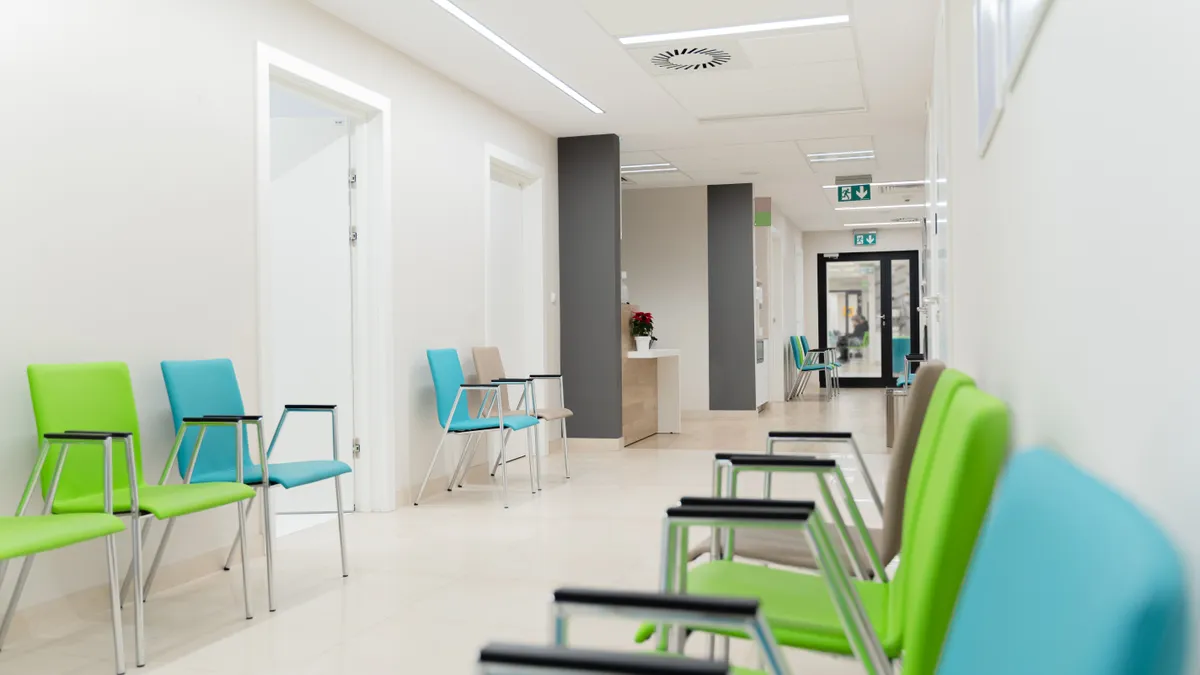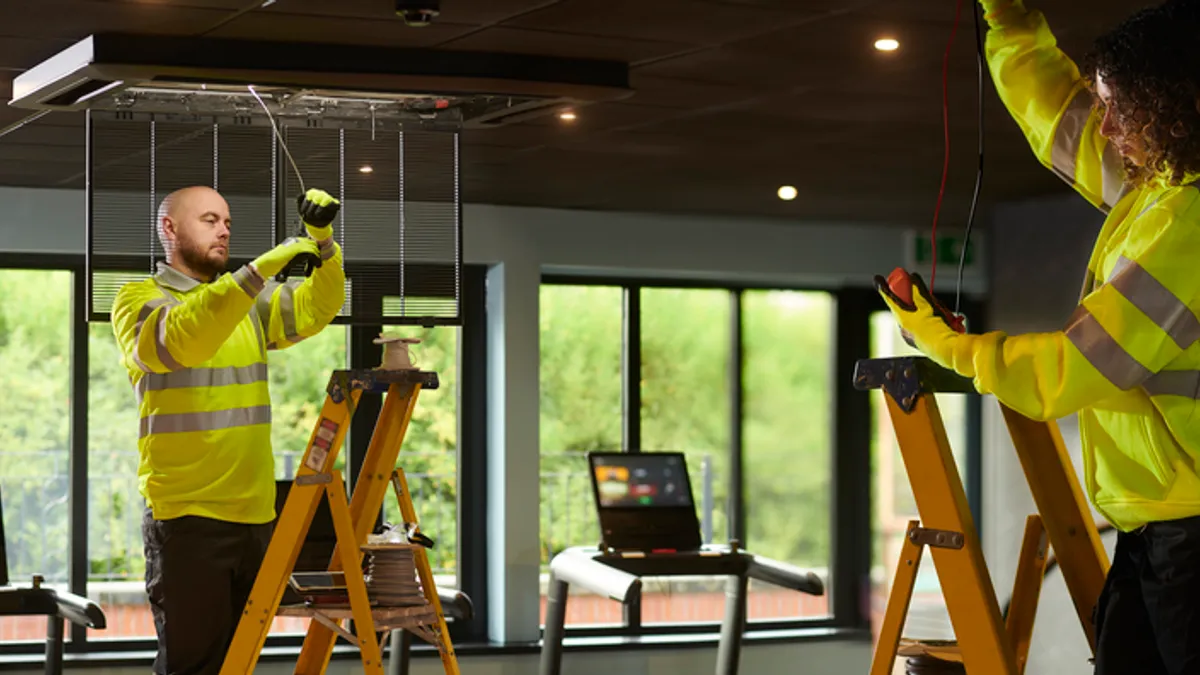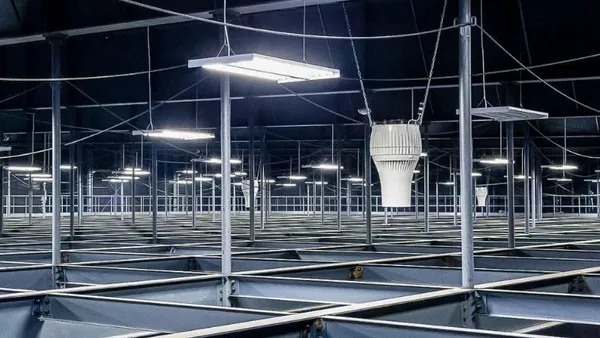Dive Brief:
- CREF, a global corporate real estate and facilities management firm, will use climate technology startup Aeroseal’s technology to improve operational efficiency and indoor air quality in facilities across its portfolio.
- As part of the agreement, Aeroseal will provide its air sealing and HVAC optimization capabilities to help CREF’s hospitals, healthcare facilities, educational institutions and commercial buildings cut energy costs and boost sustainability, the facilities management firm said in a Tuesday news release.
- The announcement comes on the heels of mask mandate reinstatements in certain U.S. hospitals, amid a rise in COVID-19, flu and other respiratory virus cases. “Health care is a complex landscape,” Guy Colglazier, vice president and general manager of Aeroseal’s commercial division, said in a statement, emphasizing that Aeroseal’s ventilation expertise, combined with CREF’s experience in acute care facilities, would yield straightforward, low-risk projects that immediately benefit healthcare facilities.
Dive Insight:
Concerns about indoor air quality are feeding occupiers’ demand for clean air measures and controls, prompting facilities managers to update their HVAC systems and monitor air ventilation. Hospitals and outpatient clinics in particular are acknowledging the need to improve air quality and cleanliness, through measures ranging from installing sensors in soap dispensers to monitoring air pressure in operating rooms, according to EY Managing Director Richard Taylor, who has created facilities knowledge centers in various healthcare organizations.
HVAC systems in healthcare facilities are instrumental in controlling air pressure, purifying the air and regulating temperature and humidity levels. If the outside air is not adequately filtered, excessive dust and pollutants can enter the building, leading to poor indoor air quality, Gary Hamilton, senior vice president and healthcare practice lead at engineering and professional services firm WSP, wrote in Engineered Systems magazine. If the air supplied to clinical spaces is not conditioned or heated properly, patients, staff and visitors can experience thermal discomfort, Hamilton said.
Even as the need for healthcare infrastructure investments accelerates, organizations are grappling with constrained access to capital, exacerbated by pressures to incorporate energy efficiency initiatives and decarbonization measures as part of their existing budgets.
CREF will first implement Aeroseal’s technology at its managed healthcare facilities with a focus on improving comfort, safety and cost effectiveness, per the news release.
By partnering with Aeroseal, CREF will be able to improve indoor air quality, reduce energy costs and curtail greenhouse gas emissions, which CREF Client Executive Josh Patterson listed as “priorities we seek to achieve for all our clients in every building we work on,” in the release.
Aeroseal, which tackles air duct leakages through seals based on sticky and non-flammable polymers, secured $67 million last year in a Series A funding round led by Climate Investment and Bill Gates’ Breakthrough Energy Ventures. The company’s CEO, Amit Gupta, said at the time that Inflation Reduction Act incentives can unlock billions of dollars in tax credits to accelerate the adoption of its technologies, which can likely be a cost-effective path to net-zero emissions for buildings.














